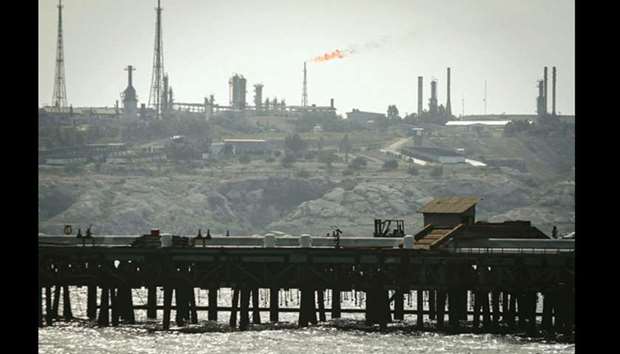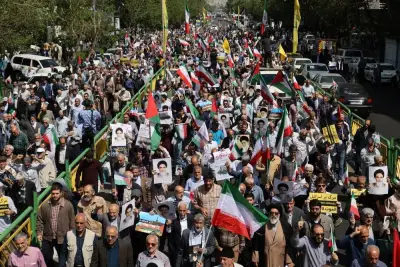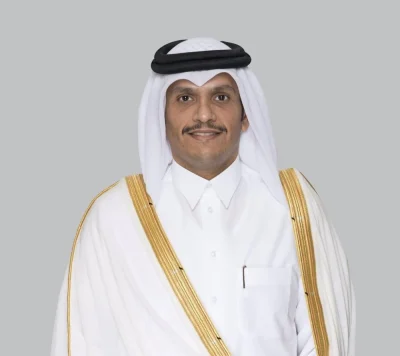Iranian President Hassan Rouhani is in a stronger position after his re-election to push through plans for wooing foreign investors the country needs to boost oil production, according to analysts at Cornerstone Global Associates and SVB Energy.
Iran’s effort to attract about $100bn to develop more than 50 oil and natural gas fields bogged down ahead of the May 19 presidential election. Political arguments stalled approval of the contract terms the government would offer, and US financial sanctions – and the potential threat of additional curbs – continue to dissuade many would-be international investors.
Rouhani defeated rivals in a landslide, winning about 57% of the vote. As his victory was announced on Saturday, US President Donald Trump was in Saudi Arabia. Trump has said the nuclear accord that world powers reached with Iran is one of the worst deals he’s seen and is reviewing policy toward the country.
“The election does give Rouhani a mandate to push things through,” Ghanem Nuseibeh, founder of London-based management consultant Cornerstone Global Associates, said in an interview in Dubai on Sunday. “Rouhani will do one of two things: either wait and see what Trump does, or he’ll say, ‘Let’s move ahead.’ I’d advise him to go ahead.”
Years of international sanctions throttled investment in Iran, once Opec’s second-largest producer, and stunted its economy. A tightening of restrictions in 2012 cut into its crude exports. The country more than doubled oil sales after restrictions were eased in January 2016.
Exports have risen to about 2.5mn bpd since then, Bijan Namdar Zanganeh, the oil minister, said on May 6 at a Tehran conference. Zanganeh has been instrumental in the government’s drive for foreign investment, helping to craft Iran’s new oil-investor contracts and pitching projects to international companies. Rouhani hasn’t said yet if he’ll retain the same cabinet for his second term.
Iran was waiting until after the election to hold its first international auction of oil-development rights, Iranian Students News Agency reported on May 16, citing Ali Kardor, managing director of state-run National Iranian Oil Co. Iran announced some terms of the new investor contract at a November 2015 conference in Tehran, and it targeted signing the first deals in March or April of 2016.
“The fact that Rouhani won as a reformist who delivered the nuclear deal and promised to bring in foreign investment would suggest that there is support for things like the oil contracts,” Patrick Murphy, a Dubai-based partner at law firm Clyde & Co, said by phone on Sunday.
Rouhani’s political foes have less interest in blocking the new contract now that he’s won a new term, said Sara Vakhshouri, president of Washington, DC-based consultant SVB Energy. Even so, international investors “are still worried about remaining US sanctions and possible future sanctions that could target Iran’s missile programme,” she said by e-mail.
The biggest oil companies have committed so far to little more than agreements to study energy projects or form development plans in Iran. Total, which agreed to draw up plans to produce offshore natural gas and pump crude onshore, hasn’t signed any final deals for projects there.
“Iran funds, arms, and trains terrorists, militias, and other extremist groups,” Trump said on Sunday in Riyadh in a speech to leaders of more than 50 predominantly Muslim countries. “All nations of conscience” should isolate Iran until it’s “willing to be a partner for peace,” he said.
The Trump administration agreed last week to roll over sanctions waivers on Iran’s oil industry and crude sales. At the same time, the US imposed new sanctions on Iran’s ballistic missile programme and said it was continuing to review Iran’s adherence to the 2015 nuclear accord.
“Everything becomes irrelevant” if Trump tears up or tries to modify the historic agreement, as that would scare off investors, said Nuseibeh, the London-based analyst.
On the other hand, Rouhani will boost interest among European governments and companies for keeping Iran open for business if he can offer oil-development contracts now, the consultant said. That would “make it even more complicated for Trump to try to renegotiate the nuclear deal,” Nuseibeh said.

A picture shows an oil facility in the Khark Island. Years of international sanctions have throttled investment in Iran, once Opec’s second-largest producer, and stunted its economy.


